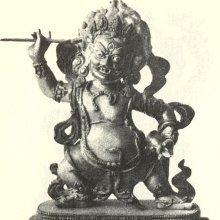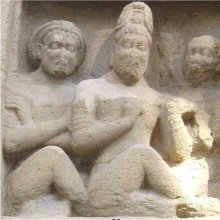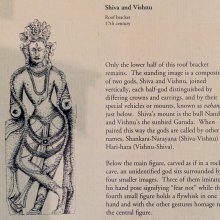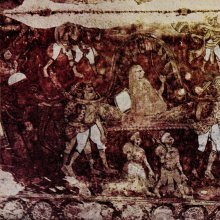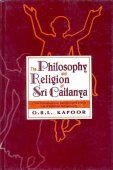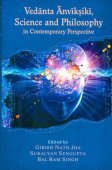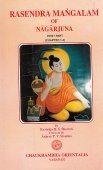Shankara, Saṅkāra, Saṅkara, Śāṃkara, Śaṅkara, Śaṃkara, Śāṅkara, Saṃkāra, Saṃkara, Sham-kara: 48 definitions
Introduction:
Shankara means something in Buddhism, Pali, Hinduism, Sanskrit, Jainism, Prakrit, the history of ancient India, Marathi, Hindi. If you want to know the exact meaning, history, etymology or English translation of this term then check out the descriptions on this page. Add your comment or reference to a book if you want to contribute to this summary article.
The Sanskrit terms Śāṃkara and Śaṅkara and Śaṃkara and Śāṅkara can be transliterated into English as Samkara or Shamkara or Sankara or Shankara, using the IAST transliteration scheme (?).
Alternative spellings of this word include Shankar.
Images (photo gallery)
In Hinduism
Vedanta (school of philosophy)
Source: Google Books: Bhāmatī and Vivaraṇa Schools of Advaita VedāntaBorn in Kāladi in C. 788 A.D., Śaṅkara was a “child-prodigy”. Son of Śivaguru and Āryāmbā (or Satī Mādhavīyā or Viśiṣṭā), Śaṅkara not only performed miracles in his early age, but even used his charisma to influence his mother to allow him to take sudden renunciation i.e., āpat-saṃnyāsa’, at the early age of six or seven, to become a pupil of Govindapāda. This early phase of his life culminated in the composition by him (at the age of twelve) of his famous commentary on the Brahma-Sūtra, the Śārīraka-bhāṣya or Brahma-sūtra-bhāṣya, which continues till date to pose a challenge even to the most articulate among the intellectuals of the world over.
Source: archive.org: Preceptors of AdvaitaŚrī Śaṅkara, the greatest expounder of Advaita Vedanta is reputed to have flourished between 788 and 820 A.D. This date cannot be regarded as finally settled and a large number of Indian scholars bring down his date to the first or second century A.D. or B.C. However, the latter part of the eighth century has been accepted by thinkers as the most probable date.
Source: academia.edu: Religious Inclusivism in the Writings of an Early Modern Sanskrit Intellectual (vedanta)Śaṅkara (शङ्कर) (c. eighth century) approach to other religions is orthodox insofar as he considers allegiance to the Veda (including Upaniṣads) to be the unique criterion and measure of legitimacy and orthodoxy on religious matters. The extent to which other traditions and branches of knowledge possess an authoritative status of their own depends on their more or less close ‘proximity’ to the Veda. More specifically, for Śaṅkara the question is not so much whether a given tradition doctrinally agrees or not with the Veda, but whether it is rooted or not in the Vedic tradition (vedamūla).

Vedanta (वेदान्त, vedānta) refers to a school of orthodox Hindu philosophy (astika), drawing its subject-matter from the Upanishads. There are a number of sub-schools of Vedanta, however all of them expound on the basic teaching of the ultimate reality (brahman) and liberation (moksha) of the individual soul (atman).
Shilpashastra (iconography)
Source: Wisdom Library: Elements of Hindu IconograpyŚaṅkara (शङ्कर):—Third of the eleven emanations of Rudra (ekādaśa-rudra), according to the Aṃśumadbhedāgama and the Śilparatna. The images of this aspects of Śiva should have three eyes, four arms, jaṭāmakuṭas and be of white colour. It should be draped also in white clothes and be standing erect (samabhaṅga) on a padmapīṭha. It should be adorned with all ornaments and with garlands composed of all flowers and it should keep their front right hand in the abhaya and the front left hand in the varada poses, while it should carry in the back right hand the paraśu and in the back left hand the mṛga.
Source: Wisdom Library: Śilpa-śāstraŚaṅkara (शङ्कर) is a Sanskrit name referring to one of the eight manifestations of Unmatta, who is a form of Bhairava. According to the Rudrayāmala, there are eight main forms of Bhairava who control the eight directions of this universe. Each form (e.g., Unmatta) has a further eight sub-manifestations (e.g., Śaṅkara), thus resulting in a total of 64 Bhairavas.
When depicting Śaṅkara according to traditional iconographic rules (śilpaśāstra), one should depcit him (and other forms of Unmatta) having a white color and good looks; he should carry in his hands the kuṇḍa, the kheṭaka, the parigha (a kind of club) and bhiṇḍipāla. The word Śilpaśāstra refers to an ancient Hindu science of arts and crafts, dealing with subjects such as painting, sculpture and iconography.

Shilpashastra (शिल्पशास्त्र, śilpaśāstra) represents the ancient Indian science (shastra) of creative arts (shilpa) such as sculpture, iconography and painting. Closely related to Vastushastra (architecture), they often share the same literature.
Natyashastra (theatrics and dramaturgy)
Source: Wisdom Library: Nāṭya-śāstraŚaṅkara (शङ्कर) is a Sanskrit word referring to a deity. Acording to the Nāṭyaśāstra 1.88-93, when Brahmā, Indra and all other gods went to inspect the playhouse (nāṭyamaṇḍapa) designed by Viśvakarmā, he assigned different deities for the protection of the playhouse itself, as well as for the objects relating to dramatic performance (prayoga).
As such, Brahmā assigned Śaṅkara to the second section (joint/knot, parva) of the Jarjara (Indra’s banner staf). The protection of the playhouse was enacted because of the jealous Vighnas (malevolent spirits), who began to create terror for the actors.

Natyashastra (नाट्यशास्त्र, nāṭyaśāstra) refers to both the ancient Indian tradition (shastra) of performing arts, (natya—theatrics, drama, dance, music), as well as the name of a Sanskrit work dealing with these subjects. It also teaches the rules for composing Dramatic plays (nataka), construction and performance of Theater, and Poetic works (kavya).
Purana and Itihasa (epic history)
Source: archive.org: Puranic Encyclopedia1) Śaṅkara (शङ्कर).—A synonym of Śiva.
2) Śaṅkara (शङ्कर).—A simpleton, who was killed by his wife. This brahmin had a very mean wife called Kalipriyā. After killing her husband she left the place with her paramour. But, wild animals killed him on their way in the forest. In all repentance Kalipriyā returned home and after worshipping the corpse of her husband she observed Kārttika vrata at the instance of certain women. Thereby she got absolution from sin and attained heaven. (Padma Purāṇa, Brahmakhaṇḍa, Chapter 10).
Source: archive.org: Shiva Purana - English TranslationŚaṅkara (शङ्कर) is another name for Śiva, according to the Śivapurāṇa 2.5.18 (“The conversation between Nārada and Jalandhara”).—Accordingly, as Sanatkumāra narrated to Vyāsa: “When the great Asura was ruling over the Earth virtuously, the gods were reduced to be mere slaves, O great sage. The distressed gods mentally sought refuge in Śiva the benefactor (śaṅkara), lord of gods and of everyone. They eulogised the great lord, the bestower of everything and favourably disposed to his devotees, by means of pleasant words. [...]”.
Source: Cologne Digital Sanskrit Dictionaries: The Purana Index1a) Śaṅkara (शङ्कर).—A name of Śiva; four kalās of;1 also Śambhu, Umāpati, Sūlapāṇi, Vṛṣabhadhvaja and Hara; fight of, with Kṛṣṇa for Bāṇa; bound by Jṛmbāstra he became disabled; asked Kṛṣṇa to spare the life of Bāṇa.2 Also (Śaṃkara)—an epithet of Mahādeva;3 the āśrama of;4 approached Vāsudeva to aid him to put down the Asura Andhakas;5 remembered Nṛsimha to vanquish the mātṛgaṇa.6
- 1) Bhāgavata-purāṇa II. 4. 19; Brahmāṇḍa-purāṇa II. 9. 90; 13. 62; IV. 35. 97; Vāyu-purāṇa 21. 10; 24. 62. 43. 38; 54. 48; 112. 35; Viṣṇu-purāṇa I. 9. 2; V. 34. 29.
- 2) Ib. V. 32. 8; 33. 21.
- 3) Matsya-purāṇa 154. 235.
- 4) Ib. 154. 381.
- 5) Ib. 154. 437, 514; 179. 35.
- 6) Ib. 179. 54; 180. 20.
1b) A son of Danu.*
- * Viṣṇu-purāṇa I. 21. 4.
Śaṃkara (शंकर) is a name mentioned in the Mahābhārata (cf. XIV.8.14, XIV.8, XIV.8.27, XIV.8) and represents one of the many proper names used for people and places. Note: The Mahābhārata (mentioning Śaṃkara) is a Sanskrit epic poem consisting of 100,000 ślokas (metrical verses) and is over 2000 years old.
Source: Shodhganga: The saurapurana - a critical study1) Śaṃkara (शंकर) refers to one of the sons of Bāṇa or Bāṇāsura: the son of Bali, according to one account of Vaṃśa (‘genealogical description’) of the 10th century Saurapurāṇa: one of the various Upapurāṇas depicting Śaivism.—Accordingly, Prahlāda’s son was Virocana who was killed by Viṣṇu and his son Bali became the king. He was pious and virtuous and was bound to Pātalā by Viṣṇu. Bāṇāsura was the son of Bali, who was a devotee of Śiva. The Lord gave Bāṇāsura the status of the leader of a Gaṇa. The son’s of Bāṇa were [viz., Śaṃkara].
2) Śaṃkara (शंकर) is the deity to be worshipped in the month Śaṅkara for the Anaṅgatrayodaśī-Vrata, according to the Saurapurāṇa.—Accordingly, the Anaṅgatrayodaśī-vrata is observed in honour of Śiva for acquiring virtue, great fortune, wealth and for destruction of sins [...] This vrata is to be performed for a year from Mārgaśīra.—In the Mārgaśīrṣa, the performer having controlled his sense-organs should brush his teeth with the piece of aśvattha-wood. Taking bath and performing tarpaṇa, should worship Śaṅkara. He should fast for the day and only gomutra (“urine of the cow”) is to be taken as food in the night. By this a person gets the result more than eight times that of atirātra sacrifice.

The Purana (पुराण, purāṇas) refers to Sanskrit literature preserving ancient India’s vast cultural history, including historical legends, religious ceremonies, various arts and sciences. The eighteen mahapuranas total over 400,000 shlokas (metrical couplets) and date to at least several centuries BCE.
Shaivism (Shaiva philosophy)
Source: Wisdom Library: ŚaivismŚaṅkara (शङ्कर) is the Sanskrit name of a deity presiding over Kurucandra, one of the sixty-eight places hosting a svāyambhuvaliṅga, which is one of the most sacred of liṅgas according to the Śaivāgamas. The list of sixty-eight svāyambhuvaliṅgas and presiding deities (e.g., Śaṅkara) is found in the commentary on the Jirṇoddhāra-daśaka by Nigamajñānadeva. The word liṅga refers to a symbol used in the worship of Śiva and is used thoughout Śaiva literature, such as the sacred Āgamas.
Source: Shodhganga: Iconographical representations of ŚivaŚaṅkara (शङ्कर) or Śaṅkarāgama refers to one of upāgamas (supplementary scriptures) of the Santānāgama which is one of the twenty-eight Siddhāntāgama: a classification of the Śaiva division of Śaivāgamas. The Śaivāgamas represent the wisdom that has come down from lord Śiva, received by Pārvatī and accepted by Viṣṇu. The purpose of revealing upāgamas (e.g., Śaṅkara Āgama) is to explain more elaborately than that of mūlāgamas (e.g., Santāna-āgama) and to include any new idea if not dealt in mūlāgamas.
Source: academia.edu: A Critical Study of the Vajraḍākamahātantrarāja (II) (shaivism)Śāṅkara (शाङ्कर) is the name of a Kṣetrapāla (field-protector) and together with Śāṅkarī they preside over Vārāṇasī: one of the twenty-four sacred districts mentioned in the Kubjikāmatatantra. Their weapon is the gadā and their abode is the tāla-tree. A similar system appears in the 9th century Vajraḍākatantra (chapter 18).

Shaiva (शैव, śaiva) or Shaivism (śaivism) represents a tradition of Hinduism worshiping Shiva as the supreme being. Closely related to Shaktism, Shaiva literature includes a range of scriptures, including Tantras, while the root of this tradition may be traced back to the ancient Vedas.
Ayurveda (science of life)
Rasashastra (Alchemy and Herbo-Mineral preparations)
Source: Wisdom Library: Rasa-śāstraŚaṅkara (शङ्कर) or Śaṅkararasa is the name of an Ayurvedic recipe defined in the fifth volume of the Rasajalanidhi (chapter 6, Hridroga: heart-diseases). These remedies are classified as Iatrochemistry and form part of the ancient Indian science known as Rasaśāstra (medical alchemy). However, since it is an ayurveda treatment it should be taken with caution and in accordance with rules laid down in the texts.
Accordingly, when using such recipes (e.g., śaṅkara-rasa): “the minerals (uparasa), poisons (viṣa), and other drugs (except herbs), referred to as ingredients of medicines, are to be duly purified and incinerated, as the case may be, in accordance with the processes laid out in the texts.” (see introduction to Iatro chemical medicines)

Āyurveda (आयुर्वेद, ayurveda) is a branch of Indian science dealing with medicine, herbalism, taxology, anatomy, surgery, alchemy and related topics. Traditional practice of Āyurveda in ancient India dates back to at least the first millenium BC. Literature is commonly written in Sanskrit using various poetic metres.
Vaishnavism (Vaishava dharma)
Source: Pure Bhakti: Brhad BhagavatamrtamŚaṅkara (शङ्कर) refers to:—A name of Śrī Śiva. (cf. Glossary page from Śrī Bṛhad-bhāgavatāmṛta).

Vaishnava (वैष्णव, vaiṣṇava) or vaishnavism (vaiṣṇavism) represents a tradition of Hinduism worshipping Vishnu as the supreme Lord. Similar to the Shaktism and Shaivism traditions, Vaishnavism also developed as an individual movement, famous for its exposition of the dashavatara (‘ten avatars of Vishnu’).
Kavyashastra (science of poetry)
Source: Shodhganga: Bhismacaritam a critical studySaṅkara (सङ्कर, “commixture”) refers to one of the various Alaṅkāras (‘figures of speech’) classified as Artha (‘sense’), as employed in the Bhīṣmacarita (Bhishma Charitra) which is a mahākāvya (‘epic poem’) written by Hari Narayan Dikshit.—In Bhīṣmacaritam, ‘saṅkara-alaṅkāra’ is found in VII.28 wherein the poet has used two words viz., “uditavīcikarā” and “taṭavihaṅmanādavacāḥ” which are like ornaments of river Yamunā here.

Kavyashastra (काव्यशास्त्र, kāvyaśāstra) refers to the ancient Indian tradition of poetry (kavya). Canonical literature (shastra) of the includes encyclopedic manuals dealing with prosody, rhetoric and various other guidelines serving to teach the poet how to compose literature.
Shaktism (Shakta philosophy)
Source: Google Books: ManthanabhairavatantramŚaṃkara (शंकर) refers to one of the eight Bhairavas (bhairava-aṣṭaka) associated with Candrapīṭha (or Candrapīṭhapura), according to the Manthānabhairavatantra, a vast sprawling work that belongs to a corpus of Tantric texts concerned with the worship of the goddess Kubjikā.—[...] The eight Bhairavas (bhairavāṣṭaka): Ciñciṇīnātha, Someśvara, Amṛta, Śaṃkara, Trimūrti, Amareśvara, Bhārabhūti, Atithi.

Shakta (शाक्त, śākta) or Shaktism (śāktism) represents a tradition of Hinduism where the Goddess (Devi) is revered and worshipped. Shakta literature includes a range of scriptures, including various Agamas and Tantras, although its roots may be traced back to the Vedas.
Jyotisha (astronomy and astrology)
Source: Wisdom Library: Brihat Samhita by VarahamihiraSaṅkara (सङ्कर) refers to the “intermingling of castes”, according to the Bṛhatsaṃhitā (chapter 9), an encyclopedic Sanskrit work written by Varāhamihira mainly focusing on the science of ancient Indian astronomy astronomy (Jyotiṣa).—Accordingly, “The five constellations from Maghā form the third maṇḍala: if Venus should reappear in it, crops will suffer; there will also be suffering from hunger and robbers. Cāṇḍālas will prosper and there will be an intermingling of castes [i.e., saṅkara-kara]. If Venus, who so reappears in the said maṇḍala, should be crossed by a planet, shepherds, hunters, the Śūdras, the Puṇḍras the border Mlecchas, the Śūlikas, forestmen, the Draviḍas and persons who live close to the sea will be afflicted with miseries”.

Jyotisha (ज्योतिष, jyotiṣa or jyotish) refers to ‘astronomy’ or “Vedic astrology” and represents the fifth of the six Vedangas (additional sciences to be studied along with the Vedas). Jyotisha concerns itself with the study and prediction of the movements of celestial bodies, in order to calculate the auspicious time for rituals and ceremonies.
General definition (in Hinduism)
Source: WikiPedia: HinduismAdi Shankara (788 CE - 820 CE) was an Indian philosopher from Kalady (Kerala) who consolidated the doctrine of Advaita Vedānta. His teachings are based on the unity of the ātman and brahman— non-dual brahman, in which brahman is viewed as nirguna brahman, brahman without attributes.
Source: World Philosophy: HinduismŚaṅkara (traditionally 788-820 CE) was the key figure in the Advaita Vedānta school, one of the most influential schools of Indian thought. He adopted much of Nāgārjuna's deconstructive approach, according to which the world as it appears to us is illusion, but took it out of a Buddhist context, instead using it to support the worldview of the Upaniṣads.
In Buddhism
Tibetan Buddhism (Vajrayana or tantric Buddhism)
Source: Wisdom Library: Tibetan BuddhismŚaṅkara (शङ्कर) is the name of a Pratyekabuddha mentioned as attending the teachings in the 6th century Mañjuśrīmūlakalpa: one of the largest Kriyā Tantras devoted to Mañjuśrī (the Bodhisattva of wisdom) representing an encyclopedia of knowledge primarily concerned with ritualistic elements in Buddhism. The teachings in this text originate from Mañjuśrī and were taught to and by Buddha Śākyamuni in the presence of a large audience (including Śaṅkara).
Source: OSU Press: Cakrasamvara SamadhiŚaṃkara (शंकर) or Śaṃkaratīrtha refers to one of the “eleven holy bathing places” (Puṇyatīrtha), according to the Guru Mandala Worship (maṇḍalārcana) ritual often performed in combination with the Cakrasaṃvara Samādhi, which refers to the primary pūjā and sādhanā practice of Newah Mahāyāna-Vajrayāna Buddhists in Nepal.

Tibetan Buddhism includes schools such as Nyingma, Kadampa, Kagyu and Gelug. Their primary canon of literature is divided in two broad categories: The Kangyur, which consists of Buddha’s words, and the Tengyur, which includes commentaries from various sources. Esotericism and tantra techniques (vajrayāna) are collected indepently.
General definition (in Buddhism)
Source: academia.edu: The Chronological History of BuddhismDuring the time of Dharmakirti, Adi Shankara (569-537 BCE) defeated Buddhists in the debate. Taranatha writes; “Inflated with vanity, they entered into debate with Shankaracharya. In this the Buddhists were defeated and, as a result everything belonging to the twenty-five centers of the Doctrine was lost to Tirthikas (Brahmana philosophers) and the centers were deserted. About five hundred Upāsakas (Buddhists) had to enter the path of Tirthikas.”
In Jainism
Jain philosophy
Source: archive.org: Anekanta Jaya Pataka of Haribhadra SuriSaṅkara (सङ्कर) refers to one of the “faults” (doṣa) mentioned in the Syādvādaratnākara and Vidyānanda’s Aṣṭaśatī as well as the Tarkarahasyadīpikā (p 93b).
-
General definition (in Jainism)
Source: archive.org: TrisastisalakapurusacaritraŚaṅkara (शङ्कर) is the name of a Vidyādhara-city, situated on mount Vaitāḍhya (in the northern row), according to chapter 1.3 [ādīśvara-caritra] of Hemacandra’s 11th century Triṣaṣṭiśalākāpuruṣacaritra: an ancient Sanskrit epic poem narrating the history and legends of sixty-three illustrious persons in Jainism.
Accordingly,
Source: Encyclopedia of Jainism: Tattvartha Sutra 5: The category of the non-living“[...] Taking their families and all their retinue and ascending the best of cars, they went to Vaitāḍhya. [...] Ten yojanas above the earth, King Vinami made at once sixty cities in a northern row at the command of the Nāga-king. [viz., Śaṅkara]. Vinami himself, who had resorted to Dharaṇendra, inhabited the city Gaganavallabha, the capital of these. [...] The two rows of Vidyādhara-cities looked very magnificent, as if the Vyantara rows above were reflected below. After making many villages [viz., Śaṅkara] and suburbs, they established communities according to the suitability of place. The communities there were called by the same name as the community from which the men had been brought and put there. [...]”.
Saṃkara (संकर, “intermixing”) according to the 2nd-century Tattvārthasūtra 5.38.—What is the meaning of saṃkara-vyatikara? Intermixing is called saṃkara and becoming one after intermixing is called vyatikara.

Jainism is an Indian religion of Dharma whose doctrine revolves around harmlessness (ahimsa) towards every living being. The two major branches (Digambara and Svetambara) of Jainism stimulate self-control (or, shramana, ‘self-reliance’) and spiritual development through a path of peace for the soul to progess to the ultimate goal.
India history and geography
Source: archive.org: Personal and geographical names in the Gupta inscriptionsŚaṃkara (शंकर) is an example of a Śaivite name mentioned in the Gupta inscriptions. Classification of personal names according to deities (e.g., from Śaivism) were sometimes used by more than one person and somehow seem to have been popular. The Gupta empire (r. 3rd-century CE), founded by Śrī Gupta, covered much of ancient India and embraced the Dharmic religions such as Hinduism, Buddhism and Jainism. Derivation of personal names (e.g., Śaṃkara) during the rule of the Guptas followed patterns such as tribes, places, rivers and mountains.
Śaṃkara is an example of a name based on some sect (e.g., Buddhist or Jain) mentioned in the Gupta inscriptions.
Source: Cologne Digital Sanskrit Dictionaries: Indian Epigraphical GlossarySaṅkara.—(EI 9), also called saṅkuru; a double sack. Note: saṅkara is defined in the “Indian epigraphical glossary” as it can be found on ancient inscriptions commonly written in Sanskrit, Prakrit or Dravidian languages.
Source: OpenEdition books: Vividhatīrthakalpaḥ (History)Saṃkara (संकर) is the name of an ancient king, as is mentioned in the Vividhatīrthakalpa by Jinaprabhasūri (13th century A.D.): an ancient text devoted to various Jaina holy places (tīrthas).—Accordingly, “Saṃkara gives twelve villages to pay homage to Ṛṣabha”.

The history of India traces the identification of countries, villages, towns and other regions of India, as well as mythology, zoology, royal dynasties, rulers, tribes, local festivities and traditions and regional languages. Ancient India enjoyed religious freedom and encourages the path of Dharma, a concept common to Buddhism, Hinduism, and Jainism.
Languages of India and abroad
Pali-English dictionary
Source: BuddhaSasana: Concise Pali-English Dictionarysaṅkara : (adj.) blissful. (m.) blending; mixing. || saṅkāra (m.) rubbish.
Source: Sutta: The Pali Text Society's Pali-English Dictionary1) Saṅkāra, (fr. saṃ+kṛ) rubbish Vin. I, 48; IV, 265; J. I, 315; II, 196.
2) Saṅkara, 2 (adj.) (cp. Sk. śaṅkara) blissful Mhbv 4 (sabba°). (Page 662)
3) Saṅkara, 1 (fight, confusion) wrongly for saṅgara Nett 149, in quot. fr. M. III, 187. (Page 662)

Pali is the language of the Tipiṭaka, which is the sacred canon of Theravāda Buddhism and contains much of the Buddha’s speech. Closeley related to Sanskrit, both languages are used interchangeably between religions.
Marathi-English dictionary
Source: DDSA: The Molesworth Marathi and English Dictionaryśaṅkara (शंकर).—m (S Maker or conferrer of śa or prosperity. ) A name of Shiva. 2 The famous teacher popularly designated śaṅkarācārya q. v.
--- OR ---
śaṅkara (शंकर).—a S Auspicious, propitious, conferring happiness or weal.
--- OR ---
śaṅkarā (शंकरा) [or शंकराभरण, śaṅkarābharaṇa].—m (S) A mode of music. See rāga.
--- OR ---
saṅkara (संकर).—m (S) Confusedly mixing or mingling. 2 Tumultuous intermixture; a medley, farrago, hotchpotch. 3 also saṅkarajāti f (S) A mixed caste or race; a caste proceeding from the promiscuous sexual intercourse of the four tribes in the first instance, and again from their commerce with the descendants of such a connection, or the indiscriminate cohabitation of those descendants amongst one another.
--- OR ---
saṅkarā (संकरा).—m (Or śaṅkarā) A Rag or mode of music. See rāga.
--- OR ---
sāṅkara (सांकर).—m R Straws, sticks, leaves, mud &c. as blocking up any watercourse: also rubbish as deposited or gathered by a stream, alluvium. 2 Phlegm collected in the throat and impeding the voice or utterance.
Source: DDSA: The Aryabhusan school dictionary, Marathi-Englishśaṅkara (शंकर).—m A name of śiva, the famous teacher popularly designated śaṅkarā- cārya. a Auspicious.
--- OR ---
saṅkara (संकर).—m Confusedly mixing. Tumultuous intermixture, a medley, a hotchpotch.
--- OR ---
saṅkara (संकर).—m saṅkarajāti f A mixed caste or race.
Marathi is an Indo-European language having over 70 million native speakers people in (predominantly) Maharashtra India. Marathi, like many other Indo-Aryan languages, evolved from early forms of Prakrit, which itself is a subset of Sanskrit, one of the most ancient languages of the world.
Sanskrit dictionary
Source: DDSA: The practical Sanskrit-English dictionaryŚaṃkara (शंकर).—a. (-rā-rī f.) [शं सुखं करोति कृ-अच् (śaṃ sukhaṃ karoti kṛ-ac)] Conferring happiness or prosperity, auspicious, propitious; भीताः शितशराभीताः शंकरं तत्र शंकरम् (bhītāḥ śitaśarābhītāḥ śaṃkaraṃ tatra śaṃkaram) (menire) Kirātārjunīya 15.31.
-raḥ 1 Name of Śiva.
2) Name of a celebrated teacher and author (śaṃkarācārya).
-rī 1 Name of Pārvatī, wife of Śiva.
2) Bengal madder.
3) The Śamī tree.
--- OR ---
Śāṅkara (शाङ्कर).—
1) A bull.
2) A Śaivaite, a devotee of Śaṃkara; प्रतोषिताश्च शाङ्कराः (pratoṣitāśca śāṅkarāḥ) Cholachampu p.24, verse 59.
3) A follower of Śaṃkarāchārya.
Derivable forms: śāṅkaraḥ (शाङ्करः).
--- OR ---
Saṃkāra (संकार).—
1) Dust, sweepings.
2) The crackling of flames.
Derivable forms: saṃkāraḥ (संकारः).
--- OR ---
Saṃkara (संकर).—
1) Commingling, mixture, intermixture; पत्रसंकर (patrasaṃkara) Ś.2.
2) Blending together, union.
3) Confusion or mixture (of castes); unlawful intermarriage resulting in mixed castes; चित्रेषु वर्णसंकरः (citreṣu varṇasaṃkaraḥ) K.; संकरो नरकायैव कुलध्नानां कुलस्य च (saṃkaro narakāyaiva kuladhnānāṃ kulasya ca) Bhagavadgītā (Bombay) 1.42; Manusmṛti 1.4.
4) (In Rhet.) The combination of two or more dependent figures of speech in one and the same passage (opp. saṃsṛṣṭi where the figures are independent); अविश्रान्तिजुषामात्मन्यङ्गाङ्गित्वे तु संकरः (aviśrāntijuṣāmātmanyaṅgāṅgitve tu saṃkaraḥ) K.P.1; or अङ्गाङ्गित्वेऽलंकृतीनां तद्वदेकाश्रयस्थितौ । संदिग्धत्वे च भवति संकरस्त्रिविधः पुनः (aṅgāṅgitve'laṃkṛtīnāṃ tadvadekāśrayasthitau | saṃdigdhatve ca bhavati saṃkarastrividhaḥ punaḥ) S. D.757.
5) The crackling of flames जागर्त्येव हि दुष्टात्मा संकरेऽग्निरिवोत्थितः (jāgartyeva hi duṣṭātmā saṃkare'gnirivotthitaḥ) Mahābhārata (Bombay) 12.13.12.
6) Dust, sweepings.
7) Dung.
Derivable forms: saṃkaraḥ (संकरः).
--- OR ---
Saṃkāra (संकार).—
1) Dust, sweepings.
2) Crackling of flames.
Derivable forms: saṃkāraḥ (संकारः).
--- OR ---
Śaṃkara (शंकर).—s. v.
Śaṃkara is a Sanskrit compound consisting of the terms śam and kara (कर).
Source: Cologne Digital Sanskrit Dictionaries: Edgerton Buddhist Hybrid Sanskrit DictionaryŚaṃkara (शंकर).—(1) name of a cakravartin: Mahāvyutpatti 3578; (2) name of a yakṣa: Mahā-Māyūrī 95. See also Śaṃkāra.
--- OR ---
Śaṃkāra (शंकार).—name of a nāga king: Mahāvyutpatti 3255 (so also Mironov; cited in [Boehtlingk and Roth] as Śaṃkara). (śaṃkāra-, (Ārya-)Mañjuśrīmūlakalpa 131.21, read saṃkāra, q.v.)
--- OR ---
Saṃkāra (संकार).—m. (= Sanskrit Lex. and Pali id.; note Sanskrit Lex. saṃkara, id., but in Caraka dung), (1) primarily, dust, sweepings, refuse, rubbish: Mahāvyutpatti 9313 = Tibetan phyag dar; tayā dārikayā gṛhaṃ saṃmṛjya…°raḥ choritaḥ Divyāvadāna 585.4; °ra-kūṭa (Pali id.), rubbish heap (see 2 below), Divyāvadāna 177.10 (tair hastapādeṣu gṛhītvā °kūṭe kṣipto), 11; [Page545-b+ 71] saṃkārāvakare śukle (read so, or °kara-śukle, for text śaṃkārāpakare śuklaṃ) paṭe…(Ārya-)Mañjuśrīmūlakalpa 131.21 (verse), on a cloth pure in regard to sweepings and rubbish (i.e. free from them); lumbinivanaṃ…vyapagatatṛṇa-reṇu-(read khā- ṇu-? see next)-pattra-saṃkāraṃ Mahāvastu i.149.3 (verse); padmini- vanaṃ…(read)apagata-tṛṇa-khāṇu-pattra-saṃkāraṃ i. 215.14 (so mss., except khāṇḍa for khāṇu, q.v.), and read so ii.18.10 lumbinivanaṃ…(mss. °saṃkara, and again khāṇḍa for khāṇu); Senart em. saṃskāraṃ and saṃkhā- raṃ, respectively, for saṃkāraṃ in the last two; (2) seems to mean more specifically dung, perhaps in °ra-kūṭa (compare 1 above), dung-heap, privy(?): so 'medhyasthāneṣv evābhi- ramate saṃkārakūṭe jambāle (mss. jā°) keśāṃl luñcati amedhyaṃ mukhe prakṣipati Avadāna-śataka i.280.5 (? but jambāla simply mud, so perhaps saṃkāra-k° rubbish-heap); and more especially in Saddharmapuṇḍarīka 105.12 ff., 109.2, 113.13 and 114.4 (but Tibetan renders phyag dar thruout), where saṃkāra-dhāna (Pali id.) seems to mean privy: °naṃ śodhayitavyaṃ 105.12; similarly 106.1, 3; dharmān pratyavarān °dhāna- sadṛśān 109.2; °dhānam imu mahya pūtikam uccāra- prasrāva-vināśitaṃ ca 113.13 (verse), especially clear, stinking, foul with dung and urine; 114.4 (verse); (3) perhaps impurity in the sense of pariahhood, outcaste state, expulsion from caste: (vayaṃ tvāṃ) jñātimadhyād utkṣipāmaḥ, saṃkāraṃ pātayāmo Divyāvadāna 273.2, 11; but mss. are not unanimous, and in same phrase 272.24 it is alleged that they read salokānāṃ (! kept in text) for saṃkāraṃ; quite uncertain. Cf. saṃkirati.
Source: Cologne Digital Sanskrit Dictionaries: Shabda-Sagara Sanskrit-English DictionaryŚaṅkara (शङ्कर).—mfn.
(-raḥ-rā-raṃ) Auspicious, propitious, conferring happiness or good fortune. m.
(-raḥ) 1. Siva. 2. The name of a celebrated teacher of the Vedanta philosophy. f. (-rī) 1. Parvati, the wife of Siva. 2. The Sami-tree. 3. Bengal madder. E. śaṃ good fortune, kara making.
--- OR ---
Śaṅkara (शङ्कर).—mfn.
(-raḥ-rā-raṃ) Formidable, fearful, frightful. E. śaṅku fear, rā to give or cause, aff. ḍa .
--- OR ---
Śāṅkara (शाङ्कर).—m.
(-raḥ) A bull. n.
(-raṃ) A form of metre. E. śaṅkara Siva, and aṇ aff.; also read śākkara .
--- OR ---
Saṅkara (सङ्कर).—m.
(-raḥ) 1. Mixing, blending, confounding. 2. A mixed caste or race, one proceeding from the promiscuous intercourse of the four tribes in the first instance, and again from their commerce with the descendants of such a connection, or the indiscriminate cohabitation of those descendants amongst one another; most Hindus of the present age are of one of the many branches of this race, the highest of which is impure and inferior to the Sudra: under this term two kinds of men are included according to the Ramayana; the one denominated yonisaṅkara, mixed or degraded by birth and the other ācārasaṅkara degraded by conduct. 3. The mixing together of two or more dependent figures of speech in the same passage. 4. Dust, sweepings. 5. The crackling of flame. f. (-rī) A new bride. E. sam before kṝ to scatter, or kṛ to make, aff. ap.
--- OR ---
Saṅkāra (सङ्कार).—m.
(-raḥ) 1. Dust, sweepings. 2. The crackling of flame. f. (-rī) A girl recently deflowered, a new bride, &c. E. sam, kṛ to make, ghañ aff.
Source: Cologne Digital Sanskrit Dictionaries: Benfey Sanskrit-English DictionaryŚaṃkara (शंकर).—i. e. śam-kṛ + a, I. adj. 1. Causing happiness, [Padma-Purāṇa, (ed. Wollheim.)] 2, 6. 2. Auspicious. Ii. m. 1. Śiva, [Harivaṃśa, (ed. Calc.)] 15408; [Vedāntasāra, (in my Chrestomathy.)] in
--- OR ---
Saṃkara (संकर).—i. e. sam-kṛ10 + a, m. 1. Mixing, blending, [Rājataraṅgiṇī] 5, 377. 2. The union of a man with a woman of a higher caste, [Mānavadharmaśāstra] 5, 89; culpable mixture, [Rāmāyaṇa] 1, 6, 17. 3. A mixed or degraded caste. 4. Dust, sweepings. 5. The crackling of flame.
--- OR ---
Saṃkāra (संकार).—i. e. sam-kṛ10 + a, I. m. 1. Dust, sweepings. 2. The crackling of flame. Ii. f. rī, A girl recently deflowered.
Source: Cologne Digital Sanskrit Dictionaries: Cappeller Sanskrit-English DictionaryŚaṃkara (शंकर).—[feminine] ī causing welfare or happiness; [masculine] [Epithet] of Rudra-Śiva, a man’s name.
--- OR ---
Śāṃkara (शांकर).—[feminine] ī relating to Śiva or Śamkarācārya.
--- OR ---
Saṃkara (संकर).—[masculine] mixture, confusion; [especially] mixture of two figures of speech, or [masculine] of caste by intermarriage.
--- OR ---
Saṃkāra (संकार).—[masculine] sweepings, dust.
Source: Cologne Digital Sanskrit Dictionaries: Aufrecht Catalogus Catalogorum1) Śaṅkara (शङ्कर) as mentioned in Aufrecht’s Catalogus Catalogorum:—son of Kālidāsa, brother of Hṛdayābharaṇa (Gītagovindatilakottama) and Devadāsa. W. p. 168.
2) Śaṅkara (शङ्कर):—father of Dāmodara, grandfather of Siddheśvara (Saṃskāramayūkha). W. p. 313.
3) Śaṅkara (शङ्कर):—father of Śatānanda (Bhāsvatīkaraṇa 1100). Cambr. 48.
4) Śaṅkara (शङ्कर):—poet. Śp. p. 90 (mentions Bhoja). [Sūktikarṇāmṛta by Śrīdharadāsa] Padyāvalī. A Śaṅkara is mentioned in Bhojaprabandha Oxf. 150^b, by Vararuci Oxf. 167^a. These are no doubt different persons. See Skandaskāraśaṅkara.
5) Śaṅkara (शङ्कर):—Adhyātmarāmāyaṇaṭīkā.
6) Śaṅkara (शङ्कर):—who seems to have written a
—[commentary] on Kātyāyanaśrautasūtra, is quoted by Devabhadra in Prayogasāra L. 756.
7) Śaṅkara (शङ्कर):—Kṛṣṇakarṇāmṛtaṭīkā.
8) Śaṅkara (शङ्कर):—Gāyatrīpuraścaraṇa.
9) Śaṅkara (शङ्कर):—Gorakṣaśatakaṭīkā. Yogasūtraṭīkā.
10) Śaṅkara (शङ्कर):—Jagannāthastotra. Jagannāthāṣṭaka.
11) Śaṅkara (शङ्कर):—astronomer: Dṛśāsphuṭamālā. Pañcapakṣī.
12) Śaṅkara (शङ्कर):—pupil of Rāmārya and Govindopādhyāya: Mīmāṃsānayavivekaśaṅkādīpikā.
13) Śaṅkara (शङ्कर):—Rāmāryā kāvya.
14) Śaṅkara (शङ्कर):—(?): Viśveśvaramāhātmya.
15) Śaṅkara (शङ्कर):—Śāradātilaka bhāṇa.
16) Śaṅkara (शङ्कर):—Sadācāravivaraṇa.
17) Śaṅkara (शङ्कर):—Saṃnyāsapaddhati.
18) Śaṅkara (शङ्कर):—pupil of Jagannātha: Siddhavidyādīpikā.
19) Śaṅkara (शङ्कर):—son of Ananta Bhaṭṭa: Vaidyavinoda, written by order of king Rāmasiṃha, son of Jayasiṃha. Śaṅkarākhya med.
20) Śaṅkara (शङ्कर):—son of Nārada: Mānavaśulbasūtrabhāṣya.
21) Śaṅkara (शङ्कर):—son of Puṇyākara: Harshacaritasaṃketa.
22) Śaṅkara (शङ्कर):—son of Ballāla: Tīrthakaumudī. Pratiṣṭhākaumudī. Vratakaumudī. Vratodyāpanakaumudī.
23) Śaṅkara (शङ्कर):—son of Dīkṣita Bālakṛṣṇa, grandson of Dīkṣita Ḍhuṇḍhirāja, wrote in the latter half of last century: Gaṅgāvatāracampū. Pradyumnavijaya nāṭaka. Śaṅkaracetovilāsa.
24) Śaṅkara (शङ्कर):—son of Bhavanātha. See Śaṅkaramiśra.
25) Śaṅkara (शङ्कर):—son of Vāsudeva, son of Rudra, son of Jayadhara, pupil of Govinda: Rasacandrikā Abhijñānaśakuntalaṭīkā.
26) Śaṅkara (शङ्कर):—son of Sudhākara, grandson of Śucikara: Granthavidhānadharmakusuma. Smṛtisudhākara.
Śaṅkara has the following synonyms: Oḍāśaṅkara.
27) Śaṅkara (शङ्कर):—son (?) of Harihara, pupil of Harsharatna: Karaṇakutūhalodāharaṇa, composed in 1619. Karaṇavaiṣṇava or Vaiṣṇavakaraṇa. Jyotiṣakeralīya.
—[commentary] on Keśava’s and Śrīpati’s Paddhati: Mentioned Bhr. p. 214.
28) Śaṅkara (शङ्कर):—Sāṃkhyapravacanasūtrabhāṣya.
29) Śaṅkara (शङ्कर):—son of Vācaspati: Dvādaśāhapaddhati.
30) Śaṅkara (शङ्कर):—guru of Mahārāja Śyāmasāh, who was a son of Mānanarendra: Vāstuśiromaṇi.
31) Śaṅkara (शङ्कर):—son of Ballāla, composed the Vratodyāpanakaumudī in 1704.
32) Śaṅkara (शङ्कर):—Kṛṣṇakarṇāmṛtaṭīkā Prapā.
33) Śaṅkara (शङ्कर):—son of Kamalākara, grandson of Lambodara, called also Śaṅkarācārya of Bengal: Tārārahasyavṛttikā. Śivārcanamahāratna.
34) Śaṅkara (शङ्कर):—son of Nīlakaṇṭha: Ekādaśīnirṇaya. Nyāyasiddhāntamañjarīdīpti.
35) Śaṅkara (शङ्कर):—son of Ratnākara: Mahimnaḥstavaṭīkā.
Source: Cologne Digital Sanskrit Dictionaries: Monier-Williams Sanskrit-English Dictionary1) Śaṅkara (शङ्कर):—See śaṃkara, p. 1054, col. 3.
2) Śaṃkara (शंकर):—[=śaṃ-kara] [from śaṃ > śam] a See below.
3) [from śam] b mf(ī)n. causing prosperity, auspicious, beneficent, [Nirukta, by Yāska; Mahābhārata; Bhāgavata-purāṇa]
4) [v.s. ...] m. Name of Rudra or Śiva, [Vājasaneyi-saṃhitā; Āśvalāyana-gṛhya-sūtra; Mahābhārata] etc.
5) [v.s. ...] of a son of Kaśyapa and Danu, [Viṣṇu-purāṇa]
6) [v.s. ...] of Skanda, [Atharva-veda.Pariś.]
7) [v.s. ...] of a serpent-demon, [cf. Lexicographers, esp. such as amarasiṃha, halāyudha, hemacandra, etc.]
8) [v.s. ...] of a Cakra-vartin, [cf. Lexicographers, esp. such as amarasiṃha, halāyudha, hemacandra, etc.]
9) [v.s. ...] Name of various authors and commentators, ([especially]) of Śaṃkarācārya (See next page, [column]1; also with bhaṭṭa, paṇḍita, śarman, rājānaka, etc.)
10) Śaṃkarā (शंकरा):—[from śaṃkara > śam] f. (cf. śaṃ-garā under śaṃ above) = śakunikā, [Pāṇini 3-2, 14], Vārtt.i, [Patañjali]
11) [v.s. ...] Name of a female, [ib.]
12) [v.s. ...] a [particular] Rāga or musical mode, [Monier-Williams’ Sanskrit-English Dictionary]
13) Śāṃkara (शांकर):—mf(ī)n. ([from] śaṃ-kara) relating or belonging to Śiva, [Kathāsaritsāgara]
14) relating to or derived from or composed by Śaṃkarācārya, [Sarvadarśana-saṃgraha; Catalogue(s)]
15) m. a bull, [Horace H. Wilson]
16) a follower of Śaṃkarācārya, [Monier-Williams’ Sanskrit-English Dictionary]
17) n. the Nakṣatra Ārdrā (presided over by Śiva), [Varāha-mihira’s Yogayātrā]
18) Saṃkara (संकर):—[=saṃ-kara] a etc. See saṃ-√kṝ.
19) Saṃkāra (संकार):—[=saṃ-kāra] a See saṃ-√kṝ.
20) Saṃkara (संकर):—[=saṃ-kara] [from saṃ-kṝ] b m. mixing together, commingling, intermixture, confusion ([especially] of castes or races, proceeding from the intermarriage of a man with a woman of a higher caste or from the promiscuous intercourse of the four tribes, and again from the indiscriminate cohabitation of their descendants; cf. yoni-s), [Manu-smṛti; Mahābhārata] etc.
21) [v.s. ...] the offspring of a mixed marriage, [Rāmāyaṇa]
22) [v.s. ...] any action similar to the intermixture of castes (sometimes n.), [Mahābhārata]
23) [v.s. ...] (in [rhetoric]) the confusion or blending together of metaphors which ought to be kept distinct (opp. to saṃ-sṛṣṭi q.v.), [Sāhitya-darpaṇa; Kāvyaprakāśa]
24) [v.s. ...] anything that may be defiled by the touch of any unclean thing, [Mahābhārata]
25) [v.s. ...] dung, [Caraka]
26) [v.s. ...] dust, sweepings, [cf. Lexicographers, esp. such as amarasiṃha, halāyudha, hemacandra, etc.]
27) [v.s. ...] the crackling of flame, [cf. Lexicographers, esp. such as amarasiṃha, halāyudha, hemacandra, etc.]
28) [v.s. ...] Name of a man, [Buddhist literature]
29) Saṃkāra (संकार):—[=saṃ-kāra] [from saṃ-kṝ] b m. dust, sweepings (-kūṭa n. a heap of rubbish), [Divyāvadāna]
30) [v.s. ...] the crackling of flame, [cf. Lexicographers, esp. such as amarasiṃha, halāyudha, hemacandra, etc.]
Source: Cologne Digital Sanskrit Dictionaries: Yates Sanskrit-English Dictionary1) Śaṅkara (शङ्कर):—(raḥ) 1. m. Shiva; name of a sage. f. (ī) Bengal madder. a. Suspicious.
2) Śāṅkara (शाङ्कर):—(raḥ) 1. m. A bull. n. Name of a metre.
3) Saṅkara (सङ्कर):—(raḥ) 1. m. Mixing, confounding; medley; dust, sweepings; crackling of a flame; mixed caste.
4) Saṅkāra (सङ्कार):—[sa-ṅkāra] (raḥ) 1. m. Dust, sweepings; crackling of flame. f. (ī) A new bride.
Source: DDSA: Paia-sadda-mahannavo; a comprehensive Prakrit Hindi dictionary (S)Śaṅkara (शङ्कर) in the Sanskrit language is related to the Prakrit word: Saṃkara.
[Sanskrit to German]
Sanskrit, also spelled संस्कृतम् (saṃskṛtam), is an ancient language of India commonly seen as the grandmother of the Indo-European language family (even English!). Closely allied with Prakrit and Pali, Sanskrit is more exhaustive in both grammar and terms and has the most extensive collection of literature in the world, greatly surpassing its sister-languages Greek and Latin.
Hindi dictionary
Source: DDSA: A practical Hindi-English dictionary1) Śaṃkara (शंकर) [Also spelled shankar]:—(nm) Lord Shiv-the annihilator of the universe; a great Indian philosopher who flourished during the last quarter of the eighth and first quarter of the ninth century and who fought successfully against Buddhism for the revival of Brahmanism.
2) Saṃkara (संकर) [Also spelled sankar]:—(a) hybrid, cross; intergrade; ~[ja] cross-breed; ~[tā] hybridism; —[śabda] a hybrid word.
3) Saṃkarā (संकरा):—(a) narrow; strait; ~[re meṃ paḍanā] to be in difficulty, to be in distress.
...
Prakrit-English dictionary
Source: DDSA: Paia-sadda-mahannavo; a comprehensive Prakrit Hindi dictionary1) Saṃkara (संकर) in the Prakrit language is related to the Sanskrit word: Śaṅkara.
2) Saṃkara (संकर) also relates to the Sanskrit word: Saṃkara.
Prakrit is an ancient language closely associated with both Pali and Sanskrit. Jain literature is often composed in this language or sub-dialects, such as the Agamas and their commentaries which are written in Ardhamagadhi and Maharashtri Prakrit. The earliest extant texts can be dated to as early as the 4th century BCE although core portions might be older.
Kannada-English dictionary
Source: Alar: Kannada-English corpusŚaṃkara (ಶಂಕರ):—[adjective] causing prosperity; auspicious; beneficient; pleasing.
--- OR ---
Śaṃkara (ಶಂಕರ):—
1) [noun] the quality of being auspicious, beneficient or pleasing.
2) [noun] Śiva, the most auspicious and benevolent deity.
3) [noun] Śrī Śaṃkarācārya, (788 b.c. to 820 b.c.) the great philosopher and propounder of Advaita system of philosophy.
4) [noun] (pros.) a set of four syllables (some times the initial long one is substituted by two short ones making it five) which can be put in sixteen combinations.
--- OR ---
Śāṃkara (ಶಾಂಕರ):—
1) [adjective] relating to Śiva.
2) [adjective] relating to, derived from or composed by Śri Śaṃkarācārya or related to his philosophy.
--- OR ---
Saṃkara (ಸಂಕರ):—[noun] Śiva.
--- OR ---
Saṃkara (ಸಂಕರ):—
1) [noun] a mixing of two or more things of heterogeneous nature.
2) [noun] such a mixture.
3) [noun] commingling of castes or races, as by an intermarriage.
4) [noun] the offspring produced by crossing two individuals of unlike genetic constitution esp. the offspring of two animals or plants of different races, varieties, species, etc.; hybrid; cross-breed.
5) [noun] things swept up, as dirt, particles, etc. swept from a floor; sweepings.
6) [noun] bits and pieces of rubbish or a pile of them.
7) [noun] (rhet.) a blending together of metaphors which ought to be kept distinct.
--- OR ---
Saṃkara (ಸಂಕರ):—[noun] a spread of a jute fabric, having two huge bag-like pouches for carrying loads of grain, fertiliser, etc. on the back of a draft animal.
Kannada is a Dravidian language (as opposed to the Indo-European language family) mainly spoken in the southwestern region of India.
See also (Relevant definitions)
Partial matches: Sam, Sha, Ca, Kara, Nakara.
Starts with (+95): Sankara-dhana, Sankara-kuta, Sankara-thana, Sankaran, Shamkarabharana, Shamkaradarshana, Shamkaragamda, Shamkaragana, Shamkaraguru, Shamkarajna, Shamkarakatha, Shamkaralaya, Shamkarananda, Shamkaraninda, Shamkarapale, Shamkarapali, Shamkaraparshada, Shamkarapoli, Shamkaraprerita, Shamkararupa.
Ends with (+17): Adishankara, Bamashankara, Bhaktashamkara, Bhatta shankara, Bhavanishankara, Bhimashankara, Bholashamkara, Bholeshamkara, Dayashankara, Devashamkara, Durgashankara, Gaurishankara, Gitashankara, Gubeshamkara, Harishankara, Janashankara, Jayashankara, Jnanashankara, Kalishankara, Kamashankara.
Full-text (+1119): Shankari, Varnasankara, Shamkarapriya, Samkarajati, Samkarikarana, Shamkaravasa, Samkarasamkara, Sankarya, Shamkaragita, Shamkariya, Bhattashrishamkara, Shamkarabrahmana, Samkarakuta, Hayavahanashamkara, Samkarata, Samkaramimamsa, Samkarasveda, Samkarajata, Samkarajatiya, Sankara-dhana.
Relevant text
Search found 205 books and stories containing Shankara, Saṅkāra, Saṅkara, Śāṃkara, Śaṅkara, Śaṃkara, Śāṅkara, Saṃkāra, Saṃkara, Sham-kara, Sankara, Shamkara, Samkara, Śaṅkarā, Saṅkarā, Sāṅkara, Śam-kara, Sam-kara, Śaṃkāra, Śaṃ-kara, Śaṃkarā, Saṃ-kara, Saṃ-kāra, Sa-nkara, Sa-ṅkāra, Saṃkarā, Śankara; (plurals include: Shankaras, Saṅkāras, Saṅkaras, Śāṃkaras, Śaṅkaras, Śaṃkaras, Śāṅkaras, Saṃkāras, Saṃkaras, karas, Sankaras, Shamkaras, Samkaras, Śaṅkarās, Saṅkarās, Sāṅkaras, Śaṃkāras, Śaṃkarās, kāras, nkaras, ṅkāras, Saṃkarās, Śankaras). You can also click to the full overview containing English textual excerpts. Below are direct links for the most relevant articles:
Sahitya-kaumudi by Baladeva Vidyabhushana (by Gaurapada Dāsa)
Text 4.97 < [Chapter 4 - First-rate Poetry]
Text 10.247 [Saṅkara] < [Chapter 10 - Ornaments of Meaning]
Text 4.99 < [Chapter 4 - First-rate Poetry]
Lakulisha-Pashupata (Philosophy and Practice) (by Geetika Kaw Kher)
Samkaracarya and Kapalikas < [Chapter 2 - Spread and Transition]
Early Textual References < [Chapter 1 - The Historical Context]
Kapalikas and the cult of body < [Chapter 2 - Spread and Transition]
Bhagavatpadabhyudaya by Lakshmana Suri (study) (by Lathika M. P.)
Dispute over Upanayana < [Chapter 4 - Similarities and Dissimilarities]
Dispute over Śaṅkara’s Birth Place < [Chapter 4 - Similarities and Dissimilarities]
Brihad Bhagavatamrita (commentary) (by Śrī Śrīmad Bhaktivedānta Nārāyana Gosvāmī Mahārāja)
Verse 1.6.15 < [Chapter 6 - Priyatama (the most beloved devotees)]
Verse 2.3.114 < [Chapter 3 - Bhajana (loving service)]
Verse 1.3.77 < [Chapter 3 - Prapañcātīta (beyond the Material Plane)]
Lord Hayagriva in Sanskrit Literature (by Anindita Adhikari)
Saṃhitā (3): Madhuvidyā < [Chapter 2]
Brāhmaṇa (1): Aśvamedha or Horse sacrifice < [Chapter 2]
Mode of worship of Hayagrīva < [Chapter 4]
Concept of Mind in the Major Upanishads (by Gisha K. Narayanan)
7(b). The Four States of Consciousness < [Chapter 4 - The concept of Mind in the Major Upaniṣads]
3. The Meaning of the Term Upaniṣad < [Chapter 2 - The concept of Mind in the Pre-Upaniṣadic Literature]
6. The Concept of Mind in Uttaramīmāṃsa or Vedanta < [Chapter 3 - The concept of Mind in the Darśanas]
Related products
(+5 more products available)
